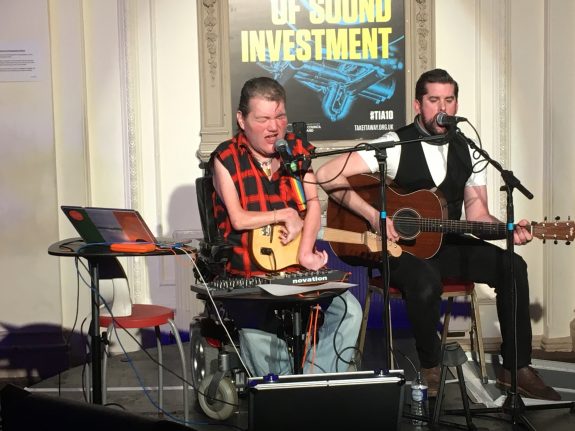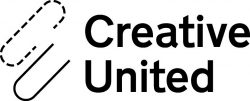We are delighted to announce that we are collaborating with Creative United, OHMI and OpenUp Music to help tackle the crisis in music education.
Together we are calling on the government to help at least 25,000 families over the next 4 years and to provide musical instruments for both disabled and non-disabled children and young people across the country.
The new collaboration was announced by the consortium alongside Andrew Miller, the Government’s Disability Champion for the Arts and Culture Sector, as part of Creative United’s celebration event at Bush Hall on March 12th to mark the 10th anniversary of Take it away.
Andrew Miller said: “I fully recognise the need to support young disabled talent at every step of their careers in music. The classical music sector has undoubtedly been slow in demonstrating support for disabled people wishing to enter the profession. I therefore welcome this collaborative initiative as a positive step forward to inclusion.”
Musician, activist and actor John Kelly played as part of the celebration, demonstrating how accessible music technology can be “a thing of beauty” with a live performance on the Kellycaster, built as part of our DMLab programme.

Our new consortium aims to make musical instruments more widely available to aspiring young musicians across the UK, with a particular emphasis on opening up new musical avenues for young disabled musicians where traditional instruments are not accessible.
The cost of inventing and building new instruments and accessible musical technology to take away disabling barriers can cost as little as a few hundred pounds, or upwards of £10,000, depending on what the musician wants and needs. Working together with the Take it away scheme will support young disabled musicians to play accessible instruments at a more affordable price.
With statutory music education now absent from the national curriculum beyond Key Stage 3, the opportunities for young people to discover and develop as musicians are increasingly scarce and government figures confirm this, showing that the number of teenagers participating in music in England is now at its lowest ever level.
Our research has also shown that disabled people are under-represented in the workforce across the music education sector. More musical opportunities and better progression routes for young disabled people are vital to turning this around and to making the music education workforce more diverse and representative of the population.
Carien Meijer, Chief Executive, Drake Music said: “We are proud to shout about the value and importance of access to music for everyone in our society. Music of all forms enriches our lives and culture. Disabled people need a broader variety of accessible instruments to open up new avenues of musical expression. Working together on initiatives like this and innovating with new technology will lead us to a future where everyone can make music, using instruments which haven’t even been imagined yet.
We are campaigning to make sure that the next generation of young musicians have the role models, instruments and opportunities they need to achieve their musical ambitions and to find professional opportunities in the sector in the future.”

Image by Emile Holba
Mary-Alice Stack, Chief Executive of Creative United said: “It’s never been harder for teenagers to become musicians and there’s never been fewer of them doing it; we need the government to work with us to act now to ensure that the opportunities for young people to develop their creative talents, including the opportunity to learn and enjoy music making, is open to all.”
Violinist Min Kym, the youngest ever foundation scholar at the Royal College of Music said: “Music and mastering the violin have been and continue to be integral parts of my life. They helped me bridge the gap between my native Korean culture and the culture of contemporary Britain that I was growing up in. I really hope both able bodied and disabled kids across Britain don’t lose access to such a life changing opportunity that learning an instrument can be. As a younger woman, I didn’t dream about meeting my perfect man; I dreamt that one day I would find my violin – I would find ‘the one.”
Stephen Hetherington, founder of OHMI: “In music, progress towards full access for disabled people lags far behind just about every other area of life. Creative United’s initiative in bringing together government and key organisations is a most important step forward.”
Barry Farrimond, CEO, OpenUp Music said “It’s often said that music is the universal language, but unfortunately, a great many disabled people continue to be left out of the conversation. Music is strengthened by the diversity of those who make it and it is absolutely essential that anyone who wants to make.”





